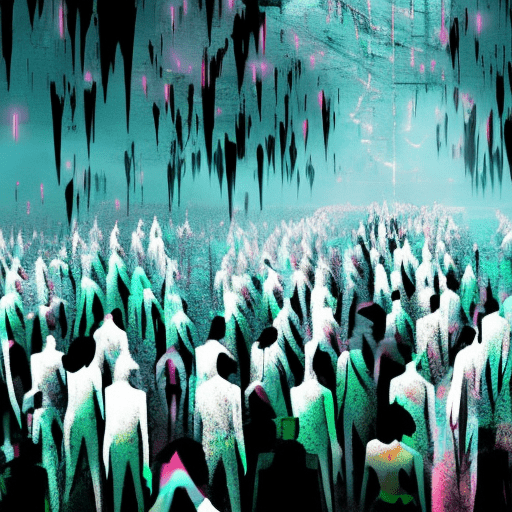One-line summary:
In Aldous Huxley’s dystopian novel, “Brave New World,” a society is created where citizens are genetically engineered, conditioned, and controlled to maintain stability and conformity.
The World State: A Perfect Society?
In “Brave New World,” Aldous Huxley presents a chilling vision of a future society known as the World State. Set in the year 2540, the novel explores a world where scientific advancements have eradicated disease, eliminated aging, and abolished poverty. The citizens of the World State are genetically engineered and conditioned from birth to fit into specific social classes, ensuring a stable and harmonious society. However, beneath the surface of this seemingly perfect world lies a dark reality.
The World State operates on the principles of stability, uniformity, and pleasure. The citizens are divided into five castes: Alphas, Betas, Gammas, Deltas, and Epsilons, each with predetermined roles and abilities. The society’s motto, “Community, Identity, Stability,” reflects the emphasis on conformity and the suppression of individuality. People are conditioned to believe that their assigned roles are not only necessary but also desirable, leading to a lack of ambition and personal fulfillment.
John the Savage: A Glimpse of the “Savage” World
Amidst this highly controlled society, the novel introduces John the Savage, a character who provides a contrasting perspective. Raised outside the World State on a Native American reservation, John has been exposed to a different way of life. He is well-versed in classic literature and holds romantic ideals of love, freedom, and individuality.
When John is brought to the World State, he becomes a symbol of the “savage” world that the citizens have been shielded from. However, he struggles to adapt to the superficial and pleasure-seeking nature of the society. John’s clashes with the World State’s values and his attempts to preserve his individuality highlight the inherent flaws in the pursuit of a utopian society.
The Loss of Humanity and the Dangers of Technological Advancement
“Brave New World” raises important questions about the loss of humanity in the face of technological advancement. The citizens of the World State are conditioned to prioritize pleasure, instant gratification, and conformity over deeper human connections and emotions. Relationships are reduced to casual encounters, and the idea of family and motherhood is considered primitive.
Huxley’s novel also explores the dehumanizing effects of technology. The citizens are constantly entertained and distracted by a variety of technological gadgets and activities, such as the feelies (movies with sensory enhancements) and the drug soma, which induces a state of euphoria. These distractions serve as a means of control, preventing individuals from questioning the flaws of their society.
Key Takeaways:
- The pursuit of a utopian society can lead to the suppression of individuality and the loss of humanity.
- Technological advancements, when misused, can dehumanize society and hinder personal growth.
- Conformity and stability can come at the expense of personal freedom and fulfillment.
“Actual happiness always looks pretty squalid in comparison with the overcompensations for misery.”
In “Brave New World,” Aldous Huxley presents a thought-provoking critique of a society that sacrifices individuality and genuine human connections in the pursuit of stability and pleasure. The novel serves as a cautionary tale, warning against the dangers of sacrificing personal freedom and authentic experiences for the sake of a seemingly perfect society.












